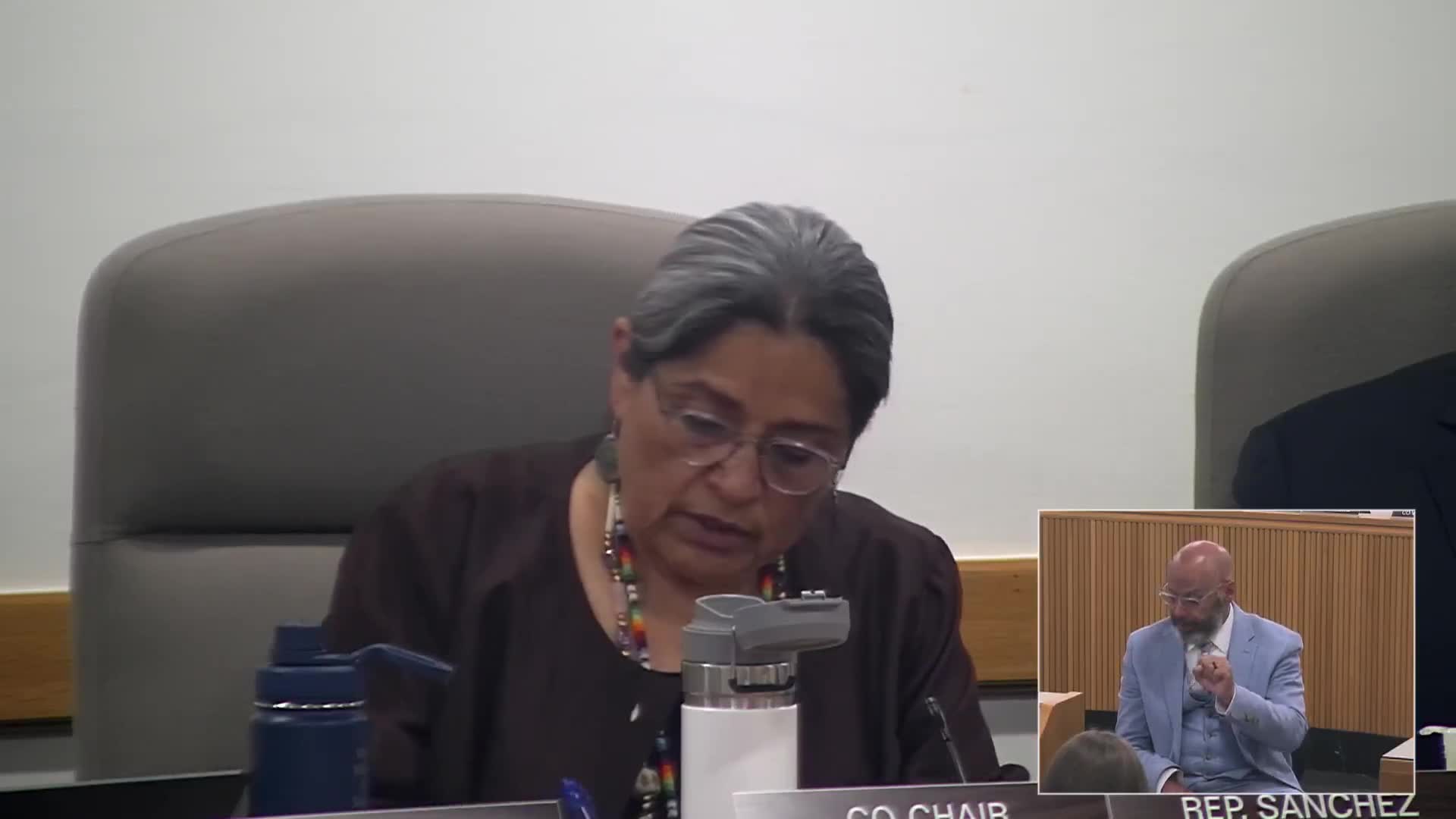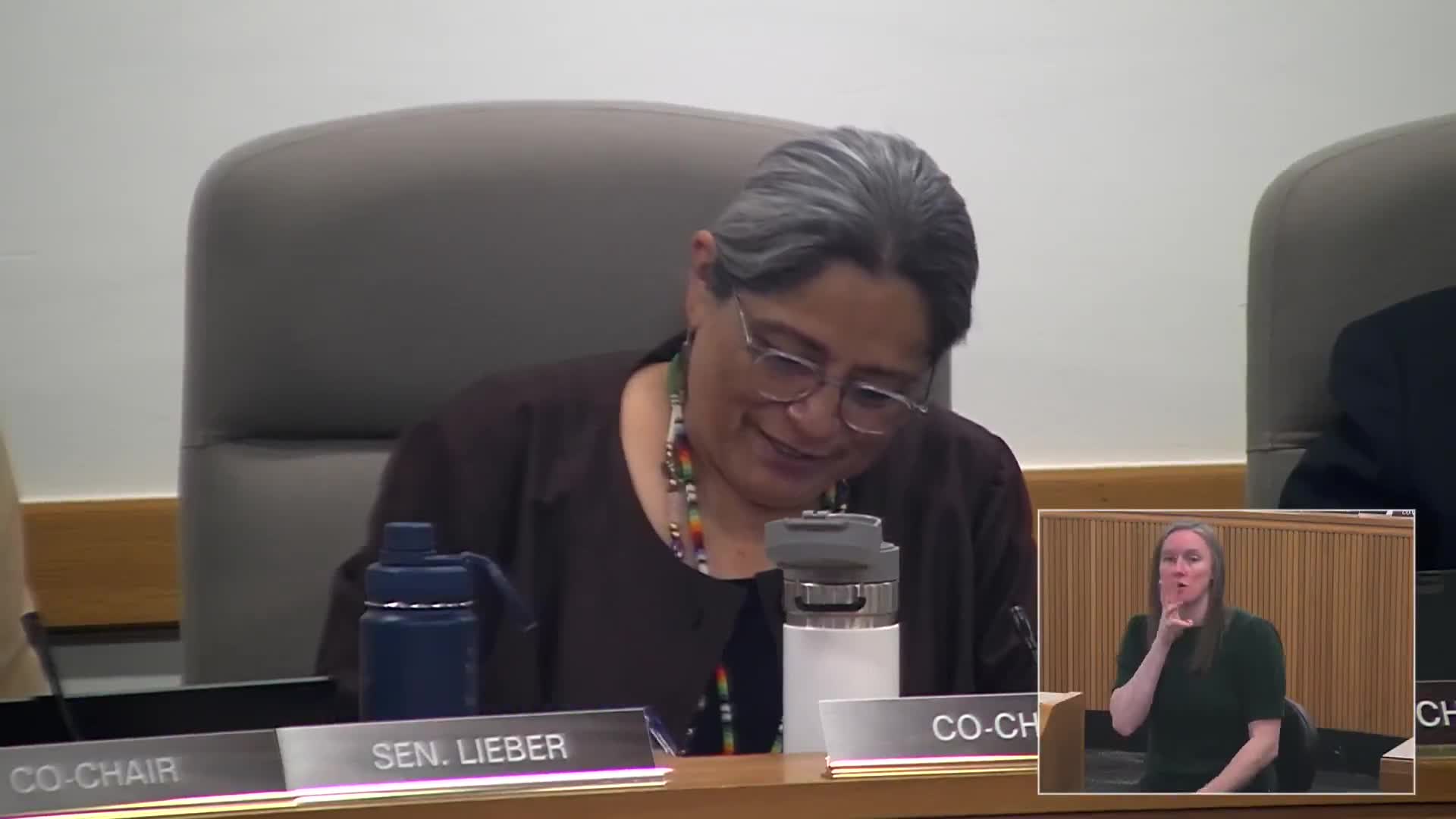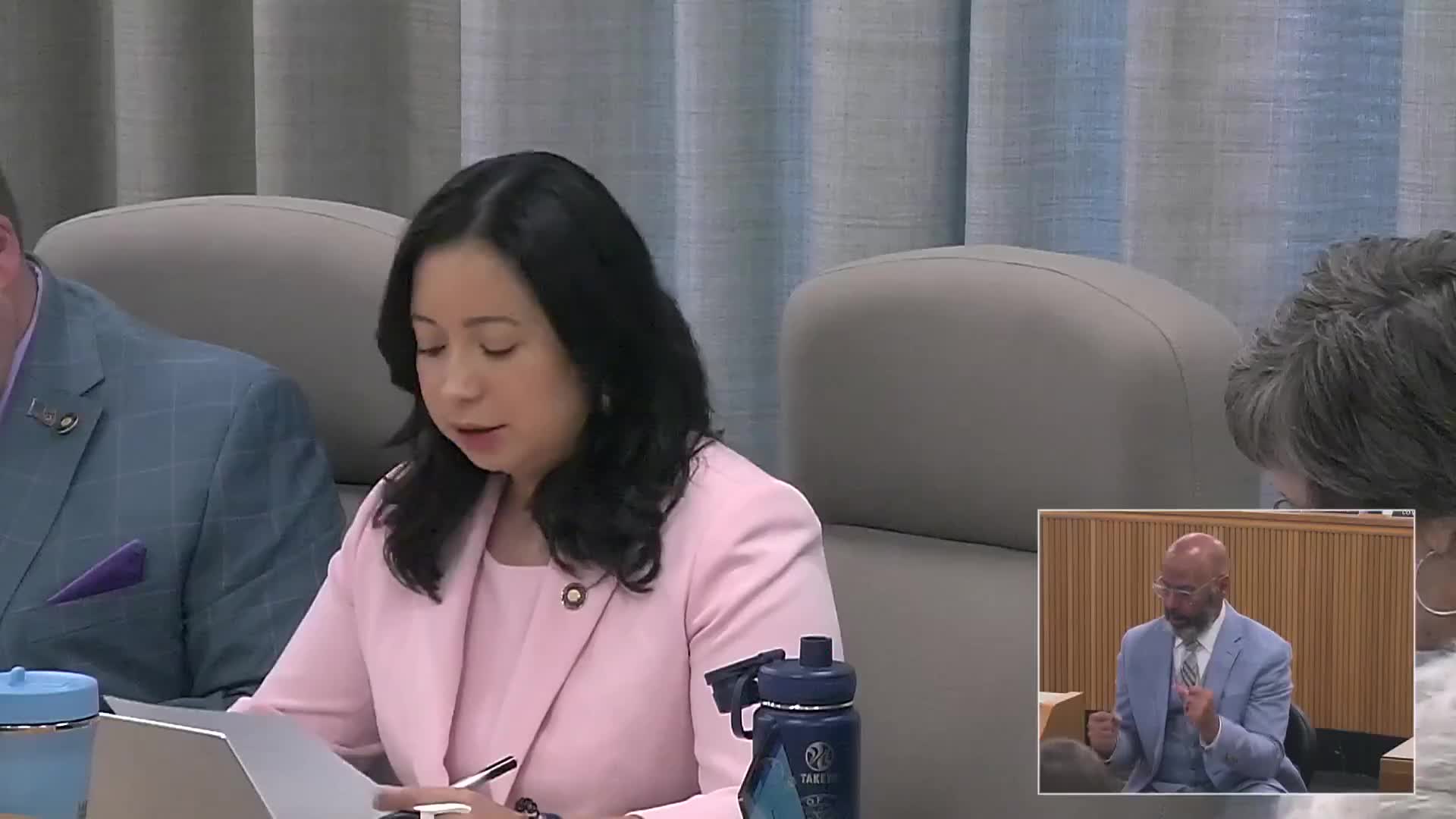Article not found
This article is no longer available. But don't worry—we've gathered other articles that discuss the same topic.

Committee backs Housing and Community Services budget with larger shelter spending, critics press for more production

Committee advances Water Resources funding package and process reforms; fee increases draw pushback from farmers

